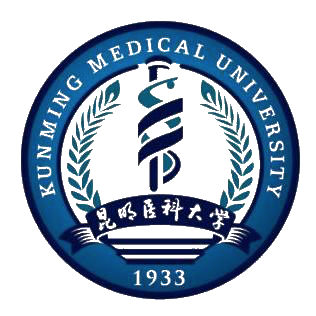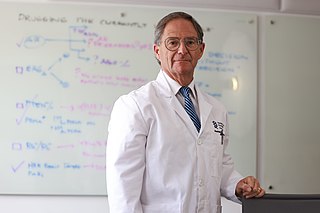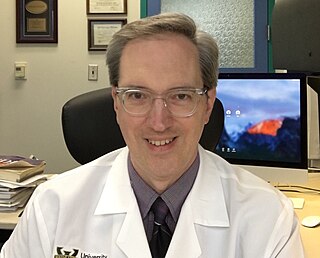CancerQuest is a non-profit education program based at Emory University. The central focus of the program is the CancerQuest website, which contains information about the biology and treatment of cancer. The development of CancerQuest began in 1998 by Dr. Gregg Orloff in response to his wife's experience with breast cancer. Orloff is an Assistant Professor of Hematology and Medical Oncology at Emory University. [1]
The CancerQuest website is structured like a textbook. Resources on the site include interviews with patients and cancer researchers at the Winship Cancer Institute of Emory University, 3D animations, and links to scientific articles on PubMed. Content includes normal cell biology, cancer biology, cancer treatments and quality of life issues for cancer patients and their caregivers.
CancerQuest went live in 2002. In 2003 Scientific American listed the site as one of the top five in the category of Medicine. [2] In 2007, CancerQuest was the recipient of the 'Mention of Honour' Award from the European School of Oncology as the best cancer education site located outside of Europe. [3]
Through partnerships with St. Petersburg State University, Russia, University of Siena, Italy, Peking University, China, China Medical University, Taiwan and volunteers in the U.S. the website is available in English, Russian, Italian, Chinese and Spanish.
A radiation oncologist is a specialist physician who uses ionizing radiation in the treatment of cancer. Radiation oncology is one of the three primary specialties, the other two being surgical and medical oncology, involved in the treatment of cancer. Radiation can be given as a curative modality, either alone or in combination with surgery and/or chemotherapy. It may also be used palliatively, to relieve symptoms in patients with incurable cancers. A radiation oncologist may also use radiation to treat some benign diseases, including benign tumors. In some countries, radiotherapy and chemotherapy are controlled by a single oncologist who is a "clinical oncologist". Radiation oncologists work closely with other physicians such as surgical oncologists, interventional radiologists, internal medicine subspecialists, and medical oncologists, as well as medical physicists and technicians as part of the multi-disciplinary cancer team. Radiation oncologists undergo four years of oncology-specific training whereas oncologists who deliver chemotherapy have two years of additional training in cancer care during fellowship after internal medicine residency in the United States.

Tianjin Medical University is a municipal public medical university in Tianjin, China. It is affiliated with the City of Tianjin, and co-funded by the Tianjin Municipal People's Government, the National Health Commission, and the Ministry of Education. The university is part of Project 211 and the Double First-Class Construction.

The University of Texas MD Anderson Cancer Center is a comprehensive cancer center in Houston, Texas. It is the largest cancer center in the world and one of the original three NCI-designated comprehensive cancer centers in the country. It is both a degree-granting academic institution and a cancer treatment and research center located within the Texas Medical Center, the largest medical center and life sciences destination in the world. MD Anderson Cancer Center has consistently ranked #1 among the best hospitals for cancer care and research in the U.S. and worldwide, and it has held the #1 position 20 times in the last 23 years in U.S. News & World Report's Best Hospitals rankings for cancer care. As of 2023, MD Anderson Cancer Center is home to the highest number of cancer clinical trials in the world and has received more NCI-funded projects than any other U.S. institute. For 2024, Newsweek placed MD Anderson at #1 in their annual list of the World's Best Specialized Hospitals in oncology.

Sir Charles Gairdner Hospital (SCGH) is a teaching hospital in Nedlands, Western Australia.
A medical physicist is a health professional with specialist education and training in the concepts and techniques of applying physics in medicine and competent to practice independently in one or more of the subfields (specialties) of medical physics. A medical physicist plays a fundamental role in applying physics to medicine, but particularly in the diagnosis and treatment of cancer. The scientific and technological progress in medical physics has led to a variety of skills that must be integrated into the role of a medical physicist in order for them to perform their job. The "medical services" provided to patients undergoing diagnostic and therapeutic treatments must, therefore, be the result of different but complementary skills. In general, the medical physicist is responsible for all scientific and technical aspects of imaging, radiation treatment, and radiation safety. It is their occupational role to ensure that medical modalities offered to patients are met with the utmost quality assurance. It is the medical physicist that manage and supervise the efforts of dosimetrists, therapists and technologists in that capacity.
Southern Illinois University School of Medicine is a medical school located in Springfield, the capital of the U.S. state of Illinois. It is part of the Southern Illinois University system, which includes a campus in Edwardsville as well as the flagship in Carbondale. The medical school was founded in 1970 and achieved full accreditation in 1972. It was founded to relieve a chronic shortage of physicians in downstate Illinois.
The Society for Immunotherapy of Cancer (SITC), previously known as the International Society for Biological Therapy of Cancer (iSBTc), is a professional society of scientists, academicians, researchers, clinicians, government representatives, and industry leaders from around the world dedicated to improving outcomes in patients with cancer by advancing the science and application of cancer immunotherapy. Currently, SITC has more than 2,400 members, representing 22 medical specialties from 42 countries around the world, who are engaged in the research and treatment of cancer.

Barrie Joyce Rabinowitz Cassileth was an American medical sociologist and researcher of complementary medicine and a critic of alternative medicine. She published extensively on alternative cancer treatments.

Kunming Medical University, previously known as Kunming Medical College, is a medical school located in Kunming City, Yunnan Province, China.
Dennis Joseph Slamon, is an American oncologist and chief of the division of Hematology-Oncology at UCLA. He is best known for his work identifying the HER2/neu oncogene that is amplified in 25–33% of breast cancer patients and the resulting treatment trastuzumab.

Jonathan W. Simons is an American physician-scientist, medical oncologist, and leader in prostate cancer research. In August 2021, Simons was appointed the medical director and Chief Science Officer of the Marcus Foundation. Prior to joining the Marcus Foundation, he served a 14-year tenure as the President and chief executive officer of the Prostate Cancer Foundation. Simons’ laboratories, partly funded by the Prostate Cancer Foundation, at Johns Hopkins University and Emory University made original contributions to understanding the molecular biology of prostate cancer metastasis and principles of “broken immune tolerance” via T cell based immunotherapy for prostate cancer. The Simons lab invented GM-CSF genetically engineered vaccines for prostate cancer in rodents and humans for these studies, and subsequently Simons’ clinical team took the biotechnology into the world’s first human gene therapy clinical trials for advanced prostate cancer at Johns Hopkins.

Oncology is a branch of medicine that deals with the study, treatment, diagnosis, and prevention of cancer. A medical professional who practices oncology is an oncologist. The name's etymological origin is the Greek word ὄγκος (ónkos), meaning "tumor", "volume" or "mass". Oncology is concerned with:
Robert E. Wittes was Physician-in-Chief of Memorial Sloan-Kettering Cancer Center, from 2002 until December 31, 2012. Prior to his appointment at MSKCC, he was Deputy Director for Extramural Sciences and Director of the Division of Cancer Treatment and Diagnosis at the National Cancer Institute, where he oversaw NCI's extramural clinical and basic research programs, including the evaluation of new therapeutics, diagnostics, and translational research. Wittes is a fellow of the American College of Physicians, a member of the American Association for Cancer Research, the American Society of Clinical Oncology, and the American Federation for Medical Research. In addition to his institutional affiliations, Dr. Wittes has served as editor-in-chief of the Journal of the National Cancer Institute and Oncology. He has served on the editorial boards of Clinical Cancer Research, Current Opinion in Oncology, The American Journal of Clinical Oncology; Cancer Investigation, and The International Journal of Radiation Oncology-Biology & Physics, among others.

David Henry Gorski is an American surgical oncologist and professor of surgery at Wayne State University School of Medicine. He specializes in breast cancer surgery at the Karmanos Cancer Institute. Gorski is an outspoken skeptic and critic of alternative medicine and the anti-vaccination movement. He writes as Orac at Respectful Insolence and as himself at Science-Based Medicine, where he is the managing editor.
Eric P. Winer is a medical oncologist and clinical researcher specializing in breast cancer. He is director of Yale Cancer Center and president and physician-in-chief of Smilow Cancer Hospital Yale New Haven Health System, effective February 1, 2022. He also is Deputy Dean for Cancer Research at Yale School of Medicine. From 1997 to 2021, he was the Chief of the Breast Oncology Program at Dana–Farber Cancer Institute in Boston, Massachusetts. Beginning in 2013, he held a range of institutional roles at Dana-Farber, including Chief of Clinical Development, the Thompson Chair in Breast Cancer Research and Director of the Dana-Farber/Harvard SPORE in Breast Cancer. He also served as a Professor of Medicine at Harvard Medical School. He was president of the American Society of Clinical Oncology (ASCO) 2022-2023 and became Chair of the Board in mid-June 2023. His career has been focused on breast cancer treatment and research.
Winship Cancer Institute of Emory University is a nonprofit cancer research and patient care center based in Atlanta, Georgia. Winship Cancer Institute is the only National Cancer Institute-designated Comprehensive Cancer Center in Georgia.

Tianjin Medical University Cancer Institute and Hospital is a cancer research institute based in China.
Carlos L. Arteaga, M.D., was appointed Director of the Harold C. Simmons Comprehensive Cancer Center and Associate Dean of Oncology Programs at UT Southwestern Medical Center in Dallas in September 2017. Previously, he was the Associate Director for Clinical Research, director of the Center for Cancer Targeted Therapies, and professor of Cancer Biology and Medicine at Vanderbilt-Ingram Cancer Center. In 2014–2015, he was the president of the American Association for Cancer Research.
Deborah Watkins Bruner is an American researcher, clinical trialist, and academic. She is the senior vice president for research at Emory University. Her research focus is on patient reported outcomes, symptom management across cancer sites, sexuality after cancer treatment, and effectiveness of radiotherapy modalities. Bruner's research has been continually funding since 1998, with total funding of her research exceeding $180 million. She is ranked among the top five percent of all National Institutes of Health-funded investigators worldwide since 2012, according to the Blue Ridge Institute for Medical Research.

Nabil F. Saba is an American oncologist. He is currently Professor and Vice-chair of Hematology and Medical Oncology, and Professor of Otolaryngology at the Winship Cancer Institute at the Emory University School of Medicine in Atlanta, Georgia. He is a specialist in the field of head and neck oncology. Saba has authored more than 200 peer-reviewed articles. He is the inaugural Lynne and Howard Halpern Chair in Head and Neck Cancer Research.